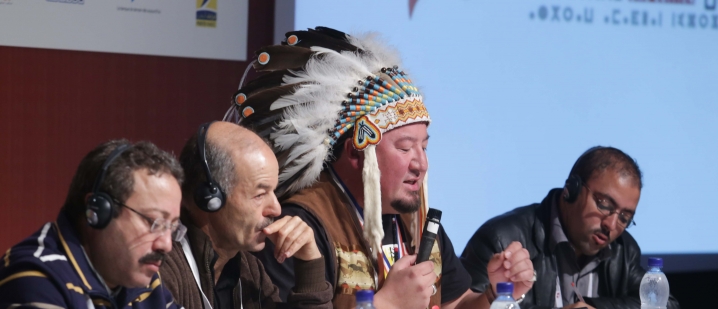Indigenous peoples from different part of the world shed light on their fight for linguistic and cultural rights, at world human rights forum
The World Human Rights Forum (Marrakesh 2014) hosted on the 27th of November 2014 a roundtable discussion on linguistic and cultural diversity, held in partnership with the Amazigh Network for Citizenship (Azetta Amazigh), the Federation of Amazigh Associations, la Casa por la Identidad and La agrupación H.I.J.O.S (from Argentina).
The participants deepened debate on cultural rights and recommended a set of proposals to promote linguistic and cultural pluralism. They exchanged their views on cultural and linguistic diversity protection in some Arab and foreign countries, including Brazil, Argentina, Canada, Lebanon, Mali, Tunisia, etc. They also shed light on the rights which indigenous peoples are deprived of and the violations and challenges they face, as they defend and work for the protection of their rights.
This roundtable discussion was an importunity to highlight the fact that respect for linguistic and cultural pluralism can guarantee cultural safety and social peace. States, for the participants, should see in pluralism a source of cohesion and a factor of stability and coexistence, rather than a source of division or a factor to weaken one party or the other.
Movements and groups defending linguistic and cultural pluralism are weak, they said, due to the low level of education and training, illiteracy, weak human rights awareness, lack of access to information, insufficient investment in media, as an effective and efficient tool to sensitize the people about their basic rights, etc.
A minute of silence was observed in memory of the victims of human rights violations in the world. The participants also discussed the main international conventions on linguistic and cultural pluralism, including the 2005 Paris Convention on the Protection and Promotion of the Diversity of Cultural Expressions.























